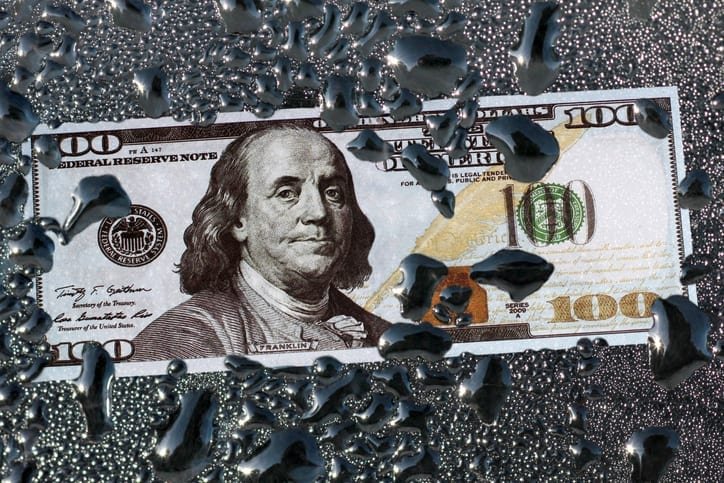The latest version of the most comprehensive report on global banks’ fossil fuel financing, Banking on Climate Change 2020, was released today (18 March).
It reveals that 35 global banks have not only been sustaining but expanding the fossil fuel sector with more than $2.7 trillion in the four years since the Paris Climate Agreement.
The report finds that financial support for the fossil fuel industry has increased every year since the Paris Agreement was adopted in December 2015.
The UN Intergovernmental Panel on Climate Change (IPCC) special report Global Warming of 1.5°C has shown that we need to rapidly reduce global carbon emissions if we are to avert the worst consequences of the climate crises.
Yet Banking on Climate Change 2020 reveals that the business practices of the world’s major private-sector banks continue to drive us toward climate disaster.
Banks ‘are failing miserably’
Banking on Climate Change 2020 was released by Rainforest Action Network, BankTrack, Indigenous Environmental Network, Oil Change International, Reclaim Finance and the Sierra Club, and endorsed by over 250 organisations from 45 countries around the world.
It adds up lending and underwriting to 2,100 companies across the coal, oil and gas sectors globally over the period 2016-2019.
The report finds that fossil fuel financing continues to be dominated by the big US banks: JPMorgan Chase, Wells Fargo, Citi and Bank of America. Together, these four banks account for a staggering 30% of all fossil fuel financing from the 35 major global banks since the Paris Agreement was adopted.
‘Banking on Climate Change 2020 paints a deeply disturbing picture of how big banks, led by JPMorgan Chase, are driving us toward climate disaster.
‘The data reveal that global banks are not only ramping up financing of fossil fuels overall, but are also increasing funding for the companies most responsible for fossil fuel expansion. This makes it crystal clear that banks are failing miserably when it comes to responding to the urgency of the climate crisis.
‘As the toll of death and destruction from unprecedented floods, droughts, fires and storms grows, it is unconscionable and outrageous for banks to be approving new loans and raising capital for the companies that are pushing hardest to increase carbon emissions.’
ALISON KIRSCH
Climate and Energy Leader Researcher at Rainforest Action Network
Top fossil fuel bank
JPMorgan Chase has provided $269 billion — over a quarter of a trillion dollars — in fossil financing since the Paris Agreement. That figure not only places JPMorgan Chase as the top fossil fuel bank in the world but shows that Chase exceeds second place Wells Fargo by a 36% margin.
JPMorgan Chase’s $269 billion also represents nearly 10% of the total fossil financing from all 35 banks studied in the report.
Furthermore, JPMorgan Chase is the most aggressive funder in some of the most dangerous and harmful categories over the last four years — leading in fossil fuel expansion, Arctic oil and gas, offshore oil and gas and fracking.
‘From the Amazon to the Arctic — JPMorgan Chase, Citi, Bank of America and Wells Fargo’s social licenses to operate are tainted with the debris of climate chaos and Indigenous rights violations. These banks must be held accountable for the destruction of Mother Earth and Indigenous lifeways. The time has long passed for banks to take corrective action –– they must divest from fossil fuels now.’
DALLAS GOLDTOOTH
Keep It In the Ground campaign organiser of Indigenous Environmental Network
$118bn from Barclays
RBC has been banking fossil fuels at $141 billion over the same period. This makes RBC the worst fossil banker in Canada, leading other Canadian banks by more than a third.
In Europe Barclays is cited as the worst, outpacing other European banks by a 36% margin. Barclays poured $118 billion into fossil fuels from 2016-2019 — though BNP Paribas was Europe’s biggest fossil fuel funder in 2019.
BNP Paribas has been the worst fossil bank in France in the four years since the Paris Agreement, by a 56% margin.
MUFG, the worst banker of fossil fuels in Japan, provided $119 billion in fossil fuel financing during this period. China’s worst fossil fuel bank, Bank of China, funnelled $84 billion to the fossil fuel sector overall and was a major funder of coal in particular.
 Play Video about This Rock Might Just Save The World
Play Video about This Rock Might Just Save The World Play Video about Play 2 hours of rock
Play Video about Play 2 hours of rock Play Video about Play 2 hours of brook
Play Video about Play 2 hours of brook Play Video about Play 2 hours of sheep
Play Video about Play 2 hours of sheep















































